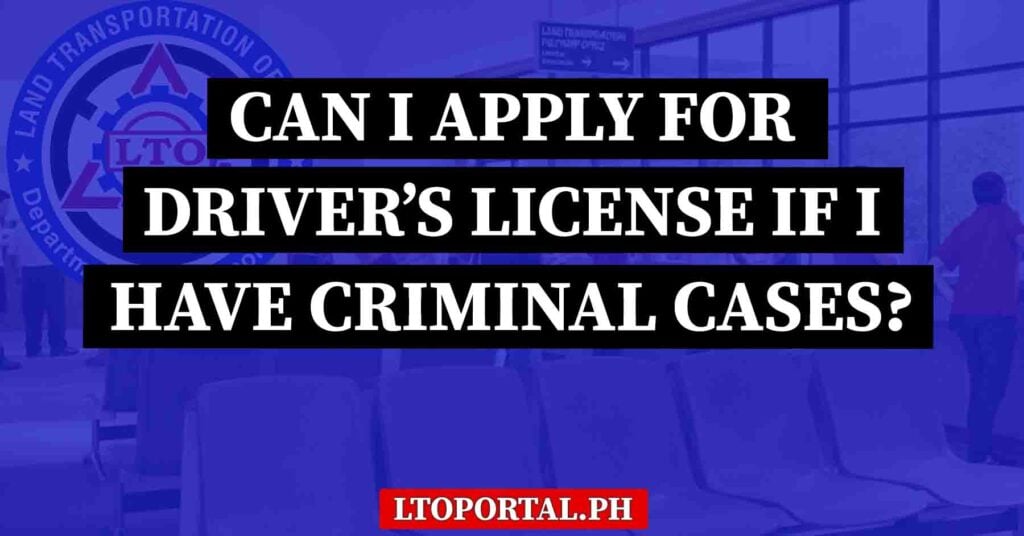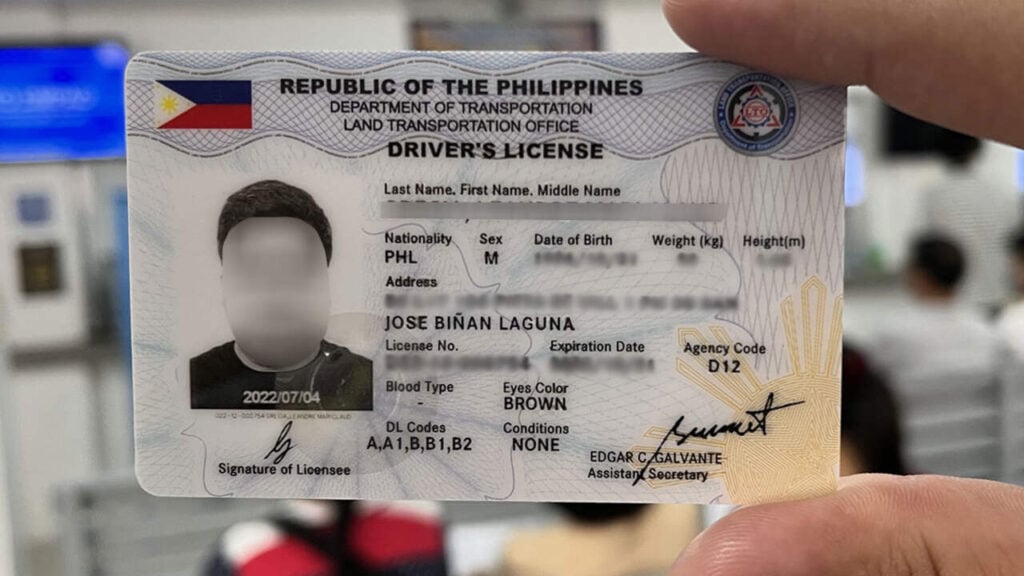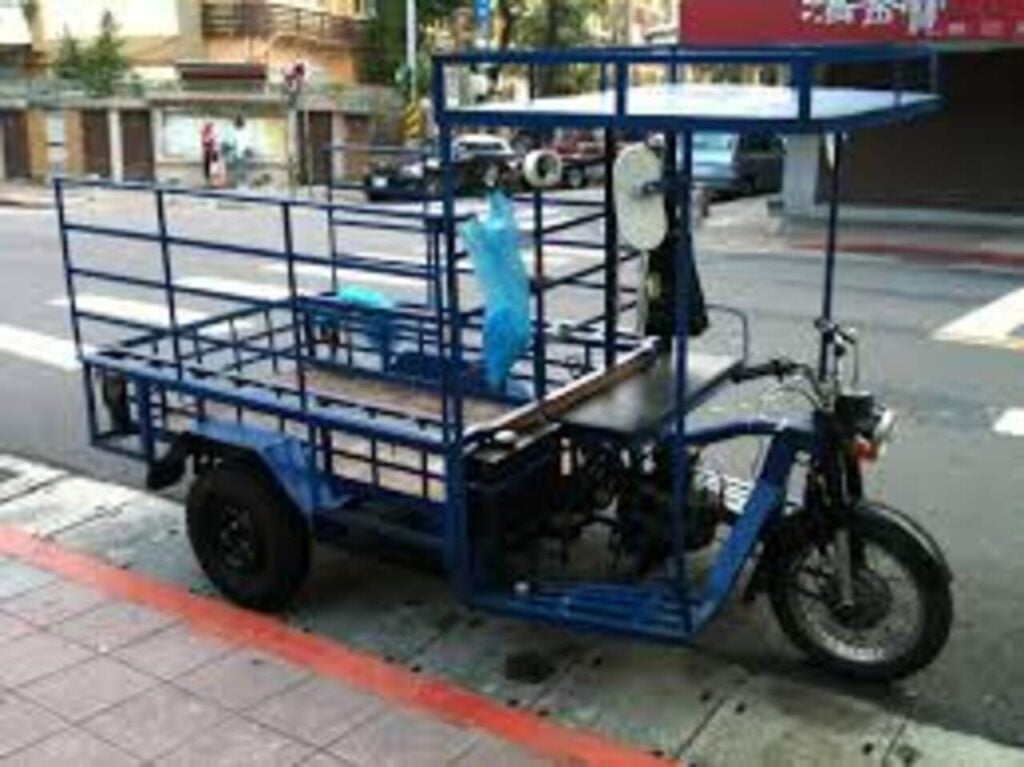Having a pending criminal case does not automatically stop you from applying for or renewing your driver’s license with the Land Transportation Office (LTO). So, if you are wondering if you can still apply for or renew your LTO driver’s license if you have a pending criminal case, then the short answer is yes, in most cases you still can—unless a court order or traffic-related offense directly affects your license. Afterall, the LTO only blocks licenses that have court orders, traffic-related criminal cases, or unsettled violations in their system.
So if your case is unrelated to traffic and there’s no court hold, you can still process your LTO driver’s license application or renewal without any problem. Let’s take a closer look at what the official sites and laws say.


What the Law Says
Under several laws and LTO regulations, a person’s driver’s license can only be suspended, revoked, or held if there’s a court order or if the case involves a traffic-related offense.
When it comes to pending criminal cases, here’s what the laws say:
- Republic Act 4136 (Land Transportation and Traffic Code): The LTO may suspend or revoke a license only after a conviction for a serious offense or when a court orders it.
- RA 10930 (2017): Focuses on traffic violations through a demerit-point system, not general crimes.
- LTO Administrative Order AVT-2014-023: Uses the Traffic Violation Information System (TVIS) to record violations that can block your renewal.
- Rule 136 of the Rules of Court: Courts may issue an order to hold or confiscate your license during a case.
- Data Privacy Act of 2012 (RA 10173): Prevents the LTO from freely checking court records for pending non-traffic cases.
This means that the LTO doesn’t automatically check for pending criminal cases unless the court or law enforcement specifically sends an order.
What the LTO Actually Checks
When you apply or renew your LTO driver’s license, the system verifies:
- Your identity and biometrics (ID, fingerprint, photo, signature)
- Medical certificate (from an LTO-accredited clinic)
- CDE exam or seminar certificate
- Unpaid traffic fines or alarms in the TVIS system
- Suspension lists from agencies like:
- PNP-HPG or i-ACT (for traffic warrants)
- LTFRB (for professional or PUV violations)
Note: The LTO does not automatically check with the DOJ, NBI, or courts for non-traffic criminal cases.
When a Pending Case Can Affect Your License
There are only a few situations where your pending criminal case can stop you from getting or renewing your LTO license:
- Court Order: A judge orders your license held or suspended (common for reckless driving resulting in injury or death).
- Traffic-Related Criminal Charge: For example, violations of RA 10586 (Anti-Drunk and Drugged Driving Act).
- LTFRB Administrative Case: For professional or PUV drivers facing misconduct.
- PNP-HPG Warrant: Your name appears on a warrant list related to vehicular crimes.
If any of these apply, your renewal will be blocked until the issue is resolved or the court order is lifted.
What Doesn’t Affect Your LTO License
You can still apply or renew your license even if you have these cases:
- Non-traffic criminal cases (e.g., estafa, BP 22, slight physical injuries)
- Cases still under preliminary investigation
- Civil or small claims cases
- Pending barangay or mediation cases
- No need for NBI or police clearance when renewing a license
As Senate leaders pointed out in previous hearings, people should not lose their livelihood as drivers just because of a pending case—since everyone is still presumed innocent until proven guilty.
Practical Tips if You Have a Pending Case
To avoid renewal problems, here’s what you can do:
- Check for traffic alarms via any LTO Law Enforcement Service counter or the LTMS portal.
- Bring a court order stating your license isn’t suspended (if applicable).
- Coordinate with your lawyer if your case involves driving conditions.
- Settle all old traffic fines—these are the most common reasons for renewal denial.
- Update your LTMS contact details to get notified if any new hold or alarm is placed.
Frequently Asked Questions (FAQs)
For your reference, here are some common questions and answers related to license application if you have pending criminal cases:
1. Can the LTO see my criminal case file?
No. They only see LTO-related records and official court orders linked to your license.
2. Can I renew online via LTMS if I have a pending theft case?
Yes, unless your license has a hold. The system will proceed if your traffic record is clear.
3. Does the NBI inform the LTO automatically?
No. As of 2025, there’s no system link between NBI and LTO for non-traffic criminal cases.
4. If my case is dismissed, how do I lift the hold?
File a Motion to Lift Hold/Suspension in court, then bring a certified copy of the order to the LTO for encoding.
Need More Information?
For specific cases, you may also consult your lawyer or contact the LTO Law Enforcement Service.




